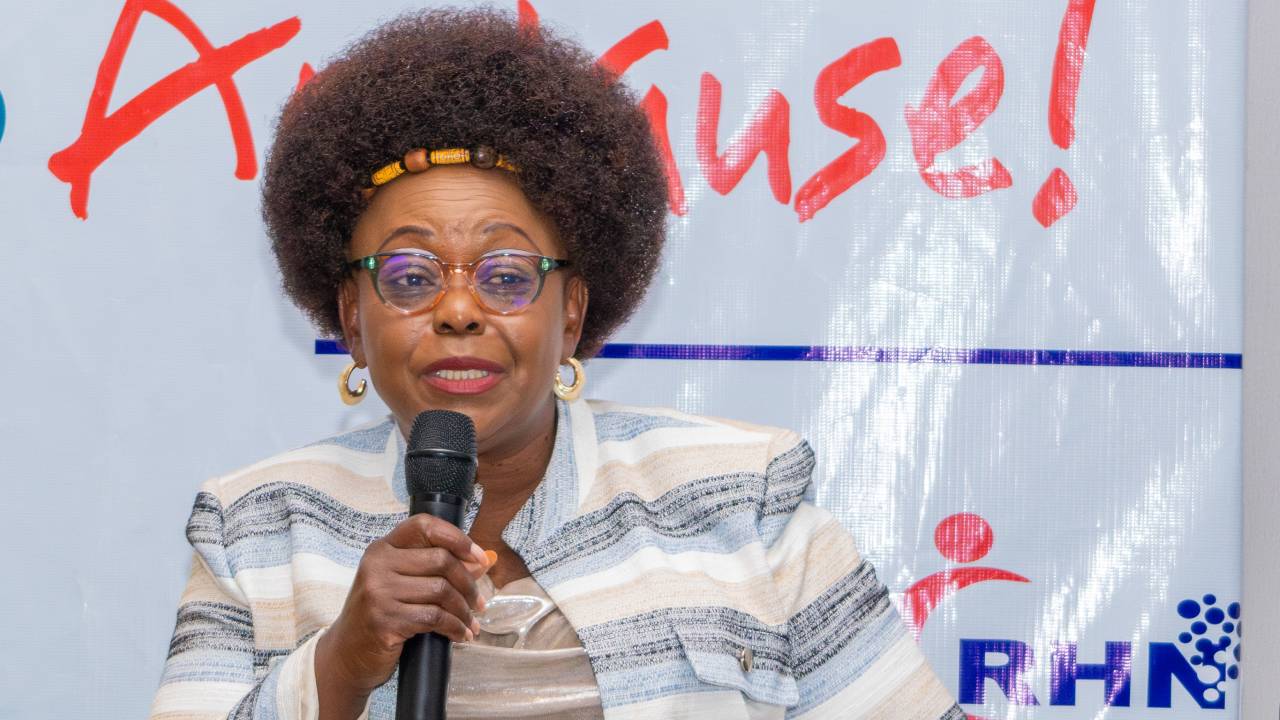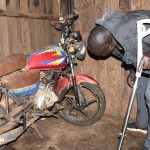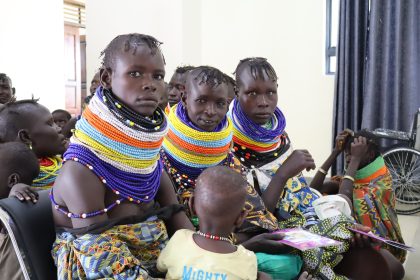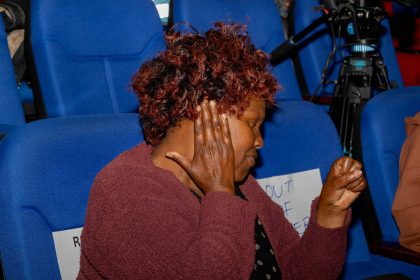For generations, menopause has been a silent passage endured by women dealing with hot flashes, night sweats, insomnia, mood changes, and vaginal dryness while handling employment and childcare responsibilities
Suba North Member of Parliament Millie Odhiambo, known for her long and contentious political career and described as ‘strong-willed’, recently revealed that she fought a quiet and devastating battle with early menopause after undergoing fibroid surgery.
“My periods stopped, which was a relief after years of illness. Then, after about two years, they returned. I was told I was perimenopausal,” she narrated, adding that one of the worst symptoms she struggled with at the time was hair loss at a very young age.
Her revelation came as Kenya formally elevated menopause as a pressing national issue central to public health, economic productivity, and human dignity during the first-ever Menopause Conversation in Nairobi.
Organised by the International Center for Research on Women (ICRW), it brought together health experts, policymakers, legal minds, and women with lived experiences to dismantle the stigma and demand urgent, systemic change.
Supreme Court judge Njoki Ndung’u anchored the conversation in law, framing support for menopausal women as a fundamental constitutional right.
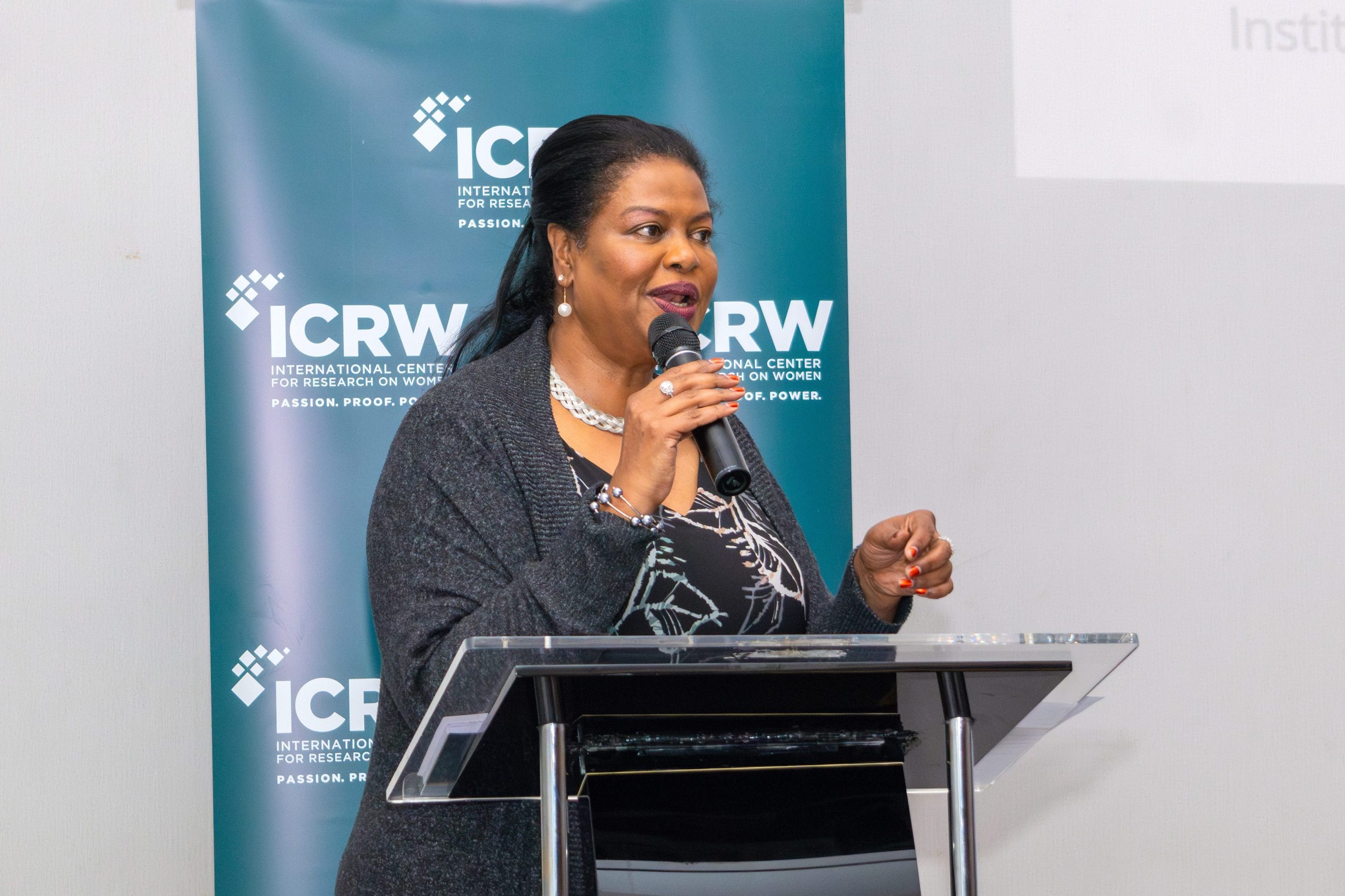
Justice Njoki Ndung’u advocates for the inclusion of menopause in school curricula
“Under Article 28, we have the right to be respected, and our dignity to be respected. Even the Labour Act has outlined flexi-hours,” Justice Ndung’u stated. She cited Article 43 on the right to health, and Article 57, which protects older members of society, noting that “menopause is largely affecting older members of society.”
Her proposition was clear: “The translation of these rights into education,” advocating for the inclusion of menopause as a subject matter in school curricula.
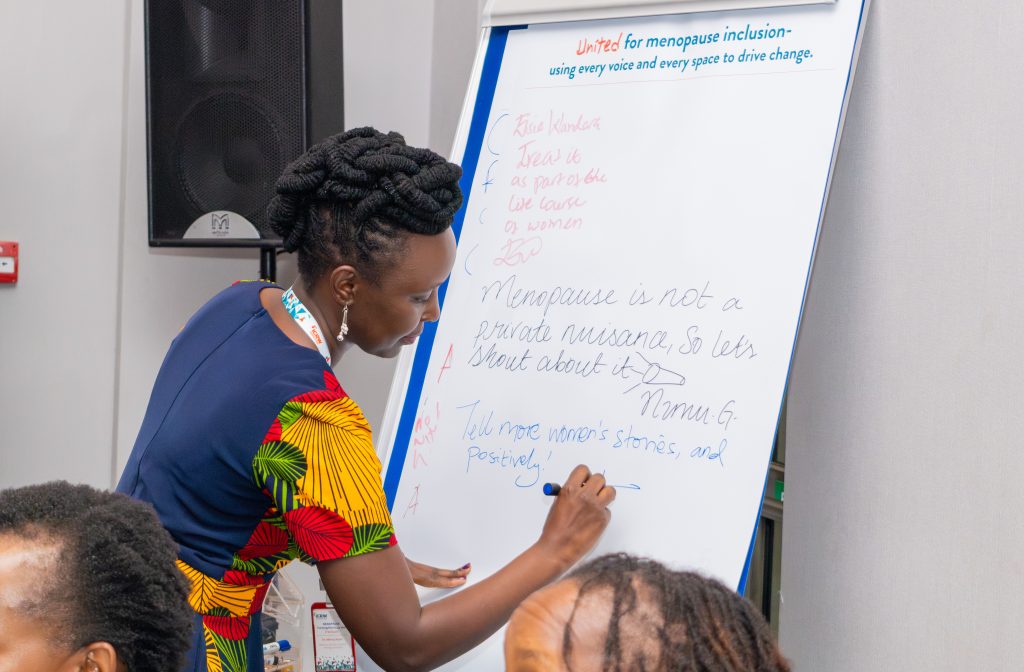
Dr Mercy Korir, the CEO of Willow Health Media, presented staggering statistics exposing a global system of neglect that renders menopause invisible.
“For a better part of women’s existence, women were not part of data or research,” Dr Korir said. While women spend a quarter of their lives in poor health, a mere one per cent of global research and development funding is dedicated to women’s health. Furthermore, approximately 90 per cent of medicines are used without full knowledge of their effects on women.
“When you come to menopause,” she asked, “what would those numbers look like? Almost non-existent.” This data desert is a primary reason for media silence. “If that information isn’t there, then what am I talking about?” she posed.
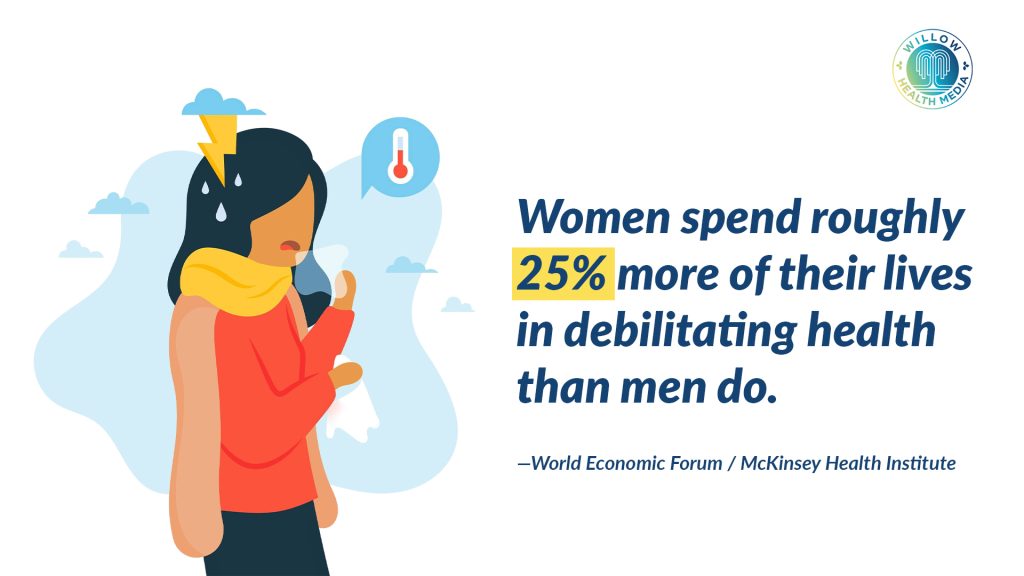
Dr Edward Serem, who heads the division of maternal and reproductive health at Kenya’s Ministry of Health, called out the staggering neglect of menopause in policy and service delivery, despite it being a public health and global issue.
Dr Serem revealed that in Kenya, one in every four women will spend more than 40 per cent of their lifespan after menopause: “That is almost half of a woman’s life, yet the system still treats this phase as if it doesn’t exist.”
He cited debilitating health conditions linked to menopausal symptoms such as osteoporosis, cardiovascular diseases, diabetes, depression, and genitourinary symptoms.
We do not want to suffer in silence; we want to understand what is happening to our bodies
Angela Nguku, founder of the White Ribbon Alliance Kenya, presented findings from a survey of 97,000 women and girls across all 47 counties under the methodology: “Ask, listen, act”.
“With a check, we don’t prescribe. We go with an open check and let women decide and tell us what exactly they want,” Nguku explained.
The message was one of profound isolation. Women reported being dismissed by healthcare workers who told them their debilitating symptoms were just “normal ageing” or that they were “being lazy”.
One woman was quoted as saying, “We do not want to suffer in silence. We want to understand what is happening to our bodies.”
The women demanded access to information in local languages, respectful healthcare, mental health support, and affordable treatment. “Women told us they are tired of being seen as reproducing machines. They want to be seen as a whole,” Nguku stated.
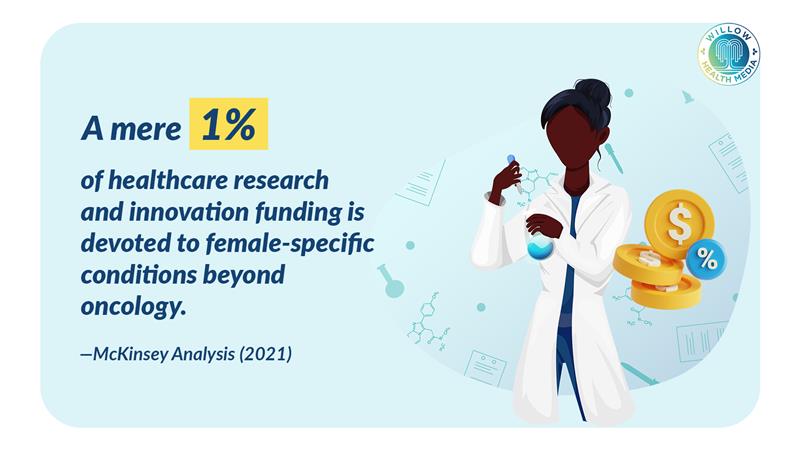
Menopause can occur prematurely in women as young as 34 due to surgery or illness
Prof Anne Kihara, an Obstetrician and Gynaecologist, explained that menopause can occur prematurely in women as young as 34 due to surgery or illness. She outlined its cascading effects: interference with “happy hormones” like serotonin and dopamine leads to mood swings, while increasing long-term risks for Alzheimer’s, dementia, cardiovascular disease, and osteoporosis.
Prof Kihara highlighted Kenya’s dire treatment gap. “We do not have definite HRT (Hormone Replacement Therapy) medications. This is for the few who can afford. What of Mama Mboga?”
Prof Lukoye Atwoli, a Psychiatrist and Dean at the Aga Khan University Medical College, East Africa, explained how the human brain bathes in a soup of chemicals. “So when the ratio of the hormones changes, it affects how we think, how we feel and how we behave.”
He outlined disabling symptoms like brain fog, anxiety, and heightened senses, stressing this is not an individual problem, but rather a societal one requiring integrated care that includes families.
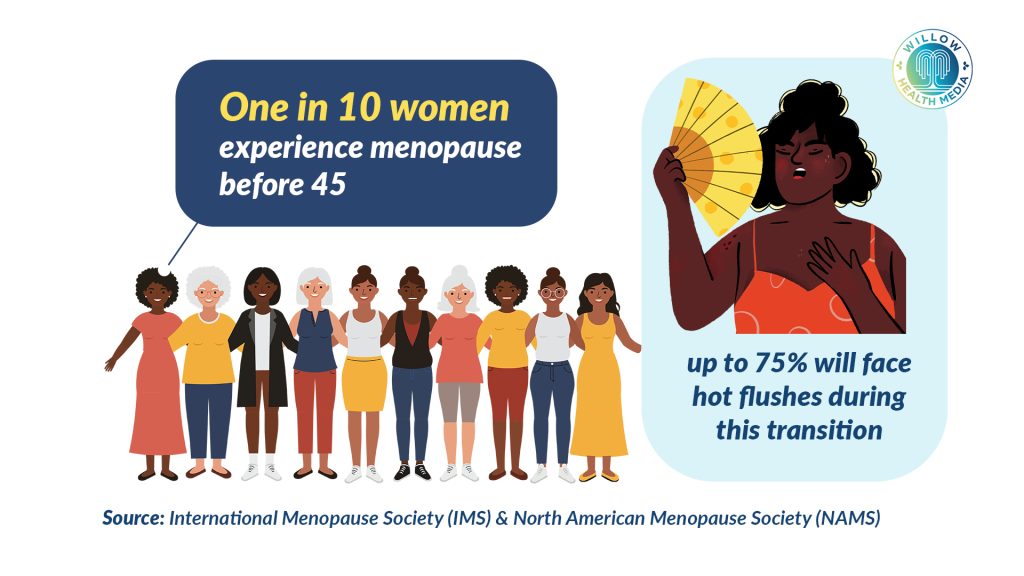
Prof Joachim Osur, Vice Chancellor of Amref International University, challenged the audience to rethink menopause’s impact.
Women have no drugs to fix that menopause, isn’t that medical injustice?
“Menopause is not only a woman’s problem. In fact, men may face an even bigger challenge than women,” he explained. He directly confronted cultural norms that dictate sexual activity should cease, stating firmly, “It is too early to stop having sex.”
He highlighted global inequity, pointing to drugs like Flibanserin for treating sexual health issues in men. “But when women have no drugs to fix that (menopause)… it is an injustice.” He emphasised that “Africans have a unique menopause experience” and stressed the need for everyone, especially men, to be informed.
For generations, menopause has been a silent passage endured by women behind closed doors. Women deal with hot flashes, night sweats, sleep disturbances, mood changes, and vaginal dryness while handling employment and childcare responsibilities.
The conference called for policymakers to enact supportive legislation and media to break the silence with accurate reporting. Already, MP Millie Odhiambo has sponsored a bill on family reproductive care that calls for proper research and mechanisms to support women, especially those still in their prime productive years.



